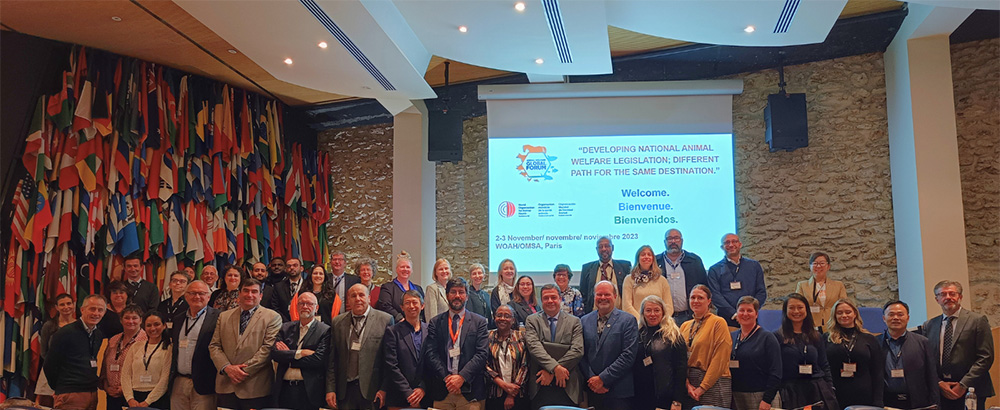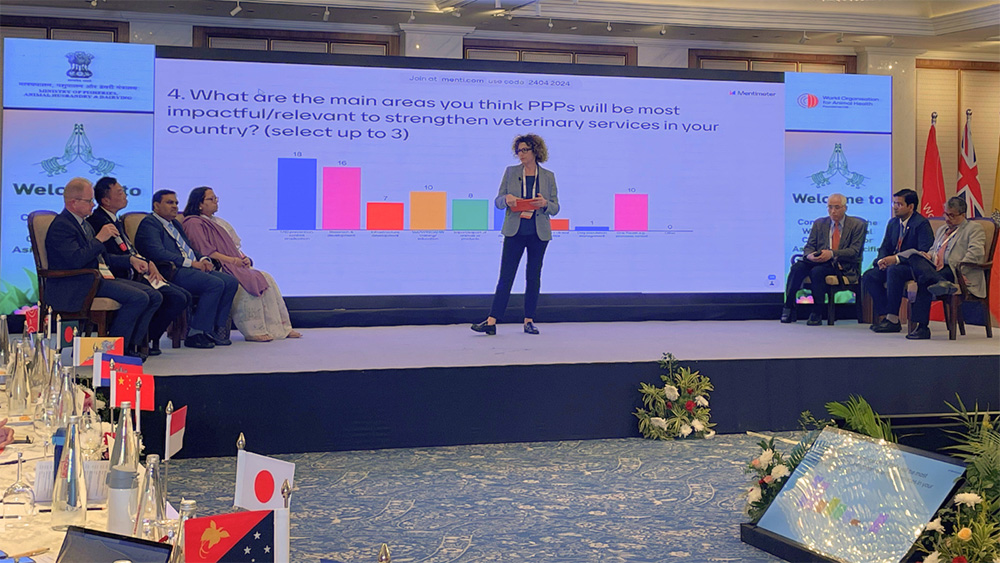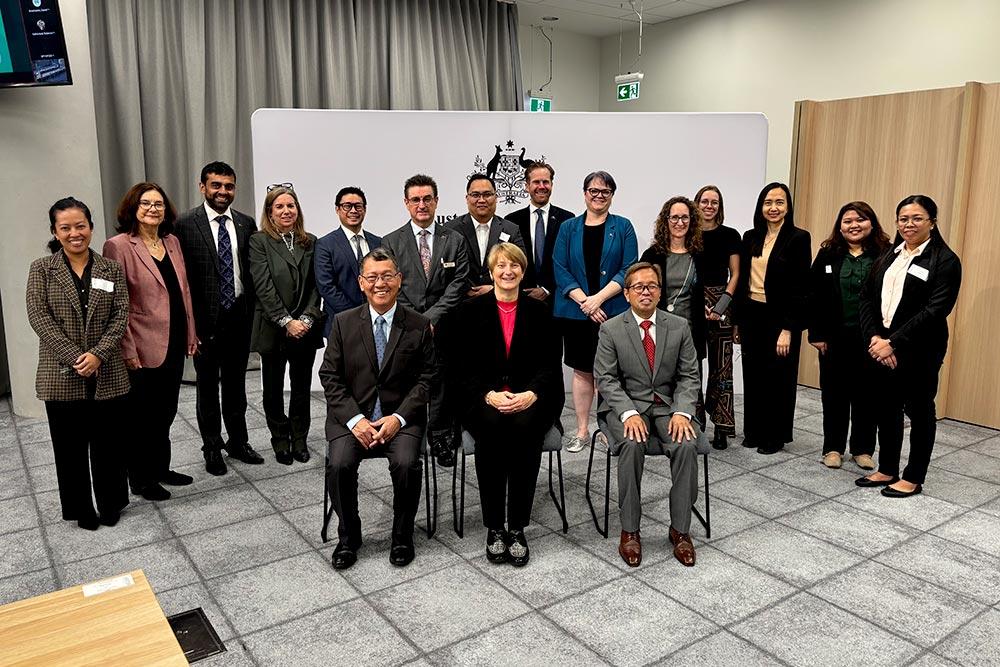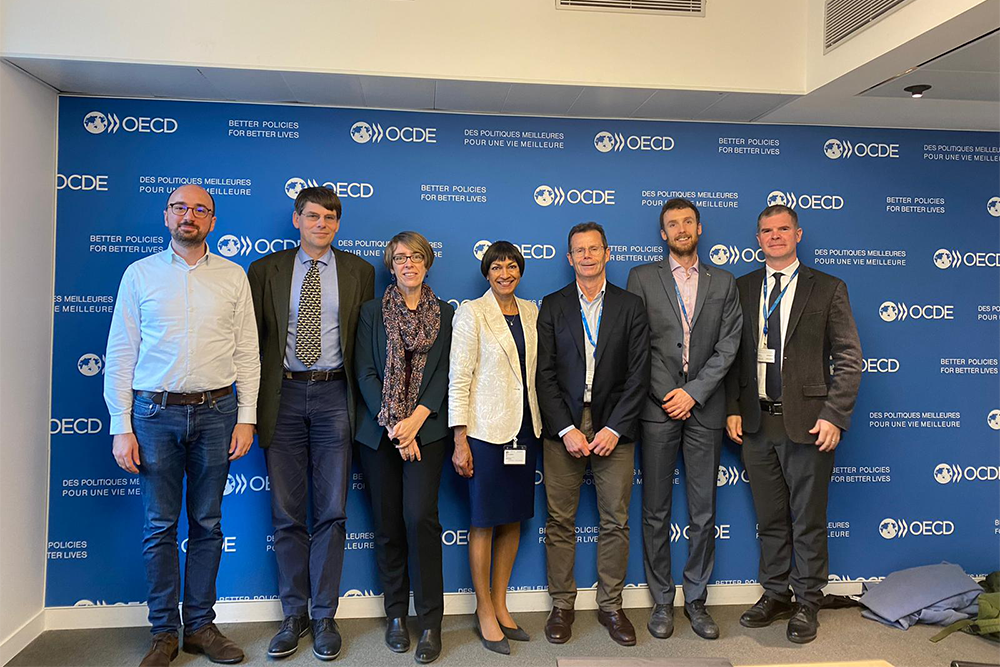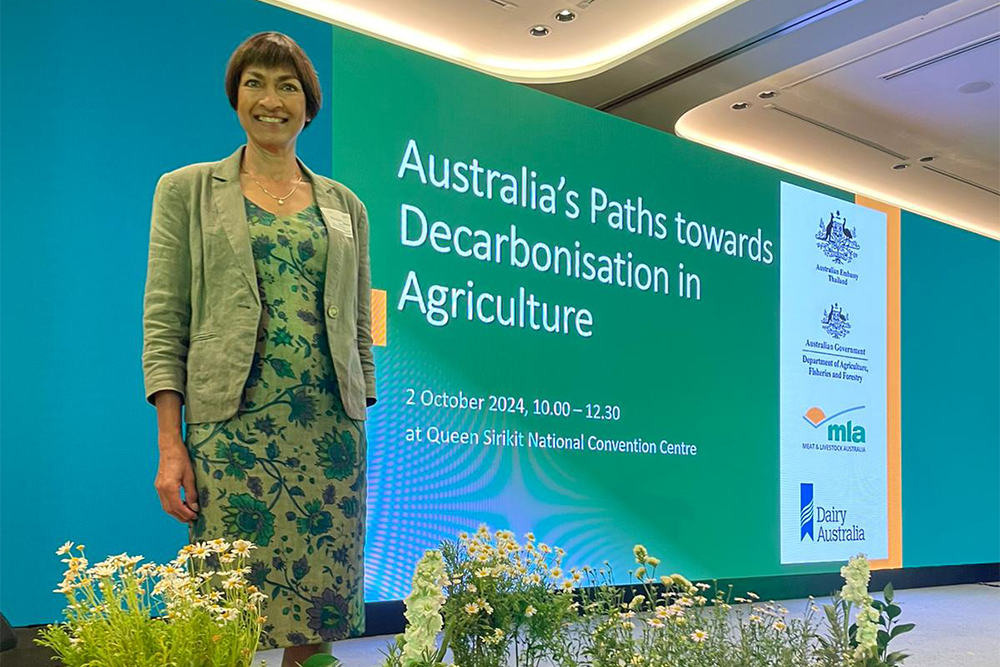The World Organisation for Animal Health (WOAH) is the global authority on animal health and welfare and works to improve these matters internationally. Collaboration is a key pillar of WOAH’s Strategic Plan. The organisation maintains a substantial network of partners in addition to its 183 members, to share knowledge and coordinate action in response to animal related threats and opportunities. Australia is a key contributor at WOAH international meetings, providing expert input to support, protect, and strengthen the global rules-based order and ensure that policies are evidence-based and practical. Australians have provided expertise at several recent WOAH meetings.
Ms Leanne Mundy, Director of Farm Animal Welfare, attended the 5th WOAH Animal Welfare Global Forum titled ‘Developing national animal welfare legislation; different paths for the same destination’. Held in Paris, France, participants discussed the technical and regulatory aspects of developing effective national veterinary legislation as the foundation of animal welfare. Participants shared information about their home country’s animal welfare legislation, and discussed the challenges and successes in implementing WOAH animal welfare standards.
Dr Carol Sheridan participated in a multi-regional Whole Journey Scenario workshop on long-distance transport by land and sea between Europe, the Middle East, and North Africa recently held Tunisia. She presented on Australia’s framework for the export of livestock by sea, focussing on the Australian Standards for the Export of Livestock and the Export Supply Chain Assurance System.
Dr Mark Schipp led the Australian Delegation to the 33rd Conference of the Regional Commission for Asia and the Pacific, held in New Delhi, India. These biennial conferences are devoted to regional cooperation, including for the control of transboundary animal diseases. Australia participated in discussions including around zoonoses prevention at their source, One Health approaches to addressing disease risk, regional rabies control, public-private partnerships within animal health, and the capacity of national veterinary services.
In the same week Dr Dwane O’Brien, acting Deputy Director at the CSIRO’s Australian Centre for Disease Preparedness, attended the WOAH and International Criminal Police Organization (INTERPOL) Interview Technique Workshop in Paris, France. Law enforcement are a key partner of veterinary services in preventing and managing emergencies and crimes impacting on animal health and welfare. Participants shared experiences of interview techniques for epidemiological, criminal, and non-compliance investigations.

